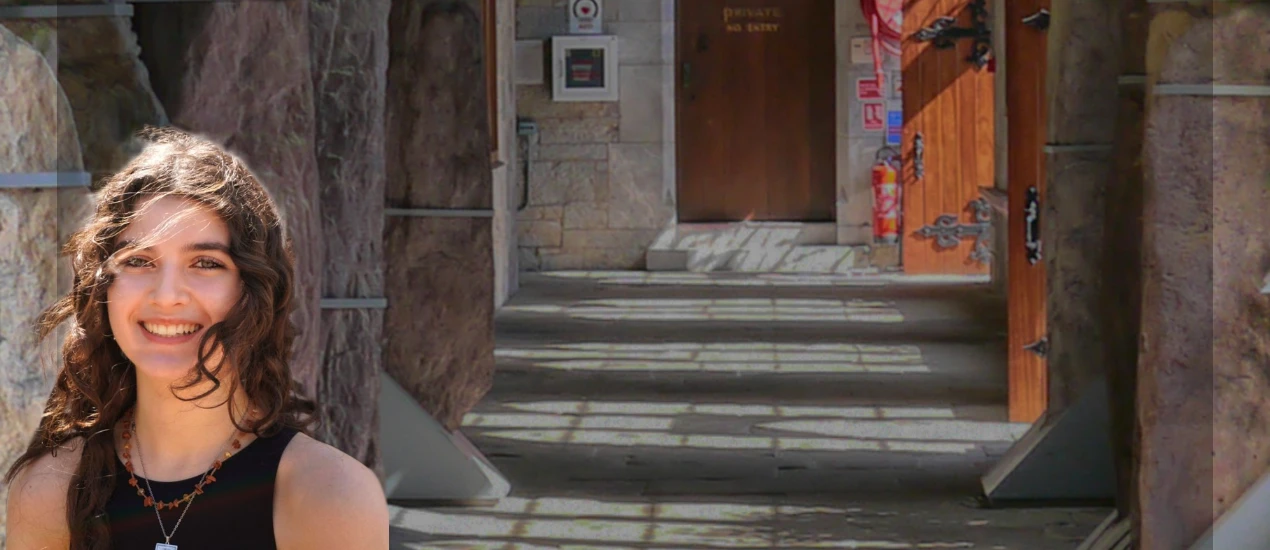| Code | CK113 |
|---|---|
| Duration | 3 or 4 Years for the International Pathway |
| Teaching Mode | Full-time |
| Qualifications | BA (Hons) |
| NFQ Level | Level 8 |
| CAO Points | 2025: 419 |
| CAO Points Range | 2025: 419-574 |
Course Outline
The Criminology BA is a window into the world, giving insight into human diversity in complex societies and a textured view of our propensity to err, conflict, blame, and punish.
This contemporary course combines key topics in the social sciences and law – such as crime, deviance, morality, conflict, censure and justice – with philosophy, history, cultural studies and a language. The result is an exceptional breadth and depth of perspective and context.
This is a research-driven, interdisciplinary programme that delivers an international body of knowledge, as well as research skills and critical thinking. Criminology provides a strong intellectual background for anyone thinking of working in culturally sensitive areas such as policing, prisons, social work, journalism, politics, research, care, health and justice agencies, support groups, charities, film or television.
Modules
All modules are worth 5 credits unless otherwise stated.
Year 1 Modules
- CR1001 Criminology: A History and Introduction
- CR1002 Criminology: Key Concepts, Studies and Issues (10 credits)
- CR1003 Introduction to the Psychology of Crime
- CR1006 Criminal Law and Social Control
- SC1012 Introduction to Sociology (Part A)
- SC1017 Key Issues in Sociology (Part B)
- LW1169 Introduction to the Legal System for Criminology
Plus students choose one 15-credit option from the following:
- French, German, Italian, Spanish, or Irish (15 credits)
- PH1001 Introduction to Philosophy (15 credits)
Philosophy
Government and Politics ( GV1217, GV1204, GV1207 - 15 credits)
- GV1204 Democracy, Ideology and Utopia
- GV1207 Politics and Government of Ireland
- GV1217 Introduction to Political Science
Please go to the individual subject pages for a list of first-year modules to find out more information.
Year 2 Modules
- CR2001 Contemporary Criminological Theory
- SC2021 Sociology of Crime and Deviance
- SC2065 Introduction to Social Research
Electives*
The criminology electives are the following: Women, Confinement and Social Control in Ireland; Crime, Urbanization and Cities; Policing Modern Society; Victims and Victimology; Young People, Trauma and the Criminal Justice System; Prisons in Practice; Online Hackers and Cyber-deviants; The Global Trade in Illicit Drugs and Its Regulation; Inside-Out Criminal Justice and Social Justice;
Students can also take electives in French; Gaeilge/Irish; German; Hispanic Studies; Italian; Philosophy; Government; Geography; History; Sociology; Law; and more. A full list of electives can be found here.
*Please note that modules are subject to availability and not all of these modules run every year.
Year 3 Modules
Electives You can take some modules on offer from Year 2 as well as modules on:
Corporate Crime; Dissertation in Criminology; Abolitionism: Critical carceral studies.
Students can also take electives in French; Gaeilge/Irish; German; Hispanic Studies; Italian; Philosophy; Government; History; Sociology; and more. A full list of electives can be found here
Note Students may opt to spend their third year studying at a partner institution abroad if they are registered on the BA Criminology (International Pathway).
Academic Programme Catalogue
See the Academic Programme Catalogue for the complete and up-to-date content for this course. Note that the modules for all courses are subject to change from year-to-year. For complete descriptions of individual modules, see the Book of Modules.
Course Practicalities
Written exams will take place before Christmas and in May. Not all modules will have formal examinations. Most modules use other types of assessment, such as essays.
In the final year, students may write a dissertation, which will normally be a literature review, on a topic of their choosing, and thus have the opportunity to undertake substantial research.
Who teaches this course?
Core modules of this degree will be taught by UCC academic staff members. Several electives will be taught by outside experts, including practitioners from the criminal justice system, and there will be seminars led by doctoral students and local scholars.
Why Choose This Course
Choose this course if you later want to work in your society to confront its social problems on the basis of a sophisticated analysis of crime, moral regulation and social deviance and if you want to develop a professional approach to bad behaviour, discipline and justice.
Placement or Study Abroad Information
You will have the option of adding a year to this three-year degree by studying abroad in Year 3. After studying abroad for Year 3 you will then return to UCC to complete your final year.
We currently have links with universities in the following countries: Canada, Denmark, Italy, Poland, Sweden, USA and the UK.
Skills and Careers Information
Students in this course will develop skills in critical thinking, comparative and cultural analysis, research methods and statistics. They will also strengthen their grasp of the role of history and examine the basis of moral justifications.
This skill set is invaluable for sensitive occupations such as:
- policing
- prisons
- probation
- social work
- social administration
- security work
- charities
- journalism
- television and film
- politics
- community development
Requirements
Leaving Certificate Entry Requirements
At Least six subjects must be presented. Minimum grade H5 in two subjects and minimum grade O6/H7 in four other subjects. English and Irish are requirements for all programmes unless the applicant is exempt from Irish.
Applicants will need to meet the following minimum entry requirements:
| English | Irish | Other Language |
|---|---|---|
| O6/H7 | O6/H7 | O6/H7 |
EU/EFTA/UK Qualifications
EU/EFTA/UK applicants presenting an equivalent school-leaving qualification should review the EU/EFTA/UK Applicants page for information on equivalent grades and how to prove their level of English.
Mature Students
To compete through the mature entry route, applicants must be 23 years of age on or before 1 January of the application year and apply online via the CAO by 1 February. The application should include a statement of interest.
Further information on applying as a mature student is available on the Mature Applicants and Mature Student Entry support pages.
QQI FET Entry
Applicants who meet the required level of distinctions in required subjects can apply for entry to this course using specific QQI FET qualifications. Please review the Programme Requirements on our Information for QQI FET Applicants page for information on related QQI courses, and visit Access UCC’s QQI/FET Entry section for further support.
Non-EU Applicants
Non-EU applicants are expected to have educational qualifications of a standard equivalent to the Irish Leaving Certificate. In addition, where such applicants are non-native speakers of the English language they must satisfy the university of their competency in the English language.
To verify if you meet the minimum academic and language requirements visit our qualification comparison page and refer to our International Office page for more information.
Non-EU Applicants
Non-EU applicants are expected to have educational qualifications of a standard equivalent to the Irish Leaving Certificate. In addition, where such applicants are non-native speakers of the English language they must satisfy the university of their competency in the English language.
To verify if you meet the minimum academic and language requirements visit our qualification comparison page and refer to our International Office page for more information.
Fees and Costs
- Whether you are an EU or Non-EU student will affect the course fees applicable to you. See more information on EU Fees, Non-EU Fees, or Free Fees Status.
- The State will pay the tuition fees for EU students who are eligible under the Free Fees Scheme. The annual student contribution and capitation fees are payable by the student.
- See the Fee Schedule to find out the course fee.
- Check out scholarships that may be available to you.
- Explore our Nurturing Bright Futures free online course (Module 5) to learn about managing your money as a student and budgeting for university life.
How To Apply
Irish and European (EU/EFTA/UK) Applicants
Apply via the CAO. See the CAO Handbook for useful information on applying through the CAO.
Mature Applicants
Apply via the CAO by 1 February. To apply for a place as a mature student, you must be 23 years of age on or before 1 January of the year of entry.
QQI/FET Applicants
Apply via the CAO. See our QQI/FET Applicants page for information on the Quality and Qualifications Ireland (QQI) Further Education and Training (FET) application process and whether there are routes available to this course.
Non-EU Applicants
If you are from outside the EU/EFTA/UK, apply online via the UCC Apply portal. See our International Office page for more information.




